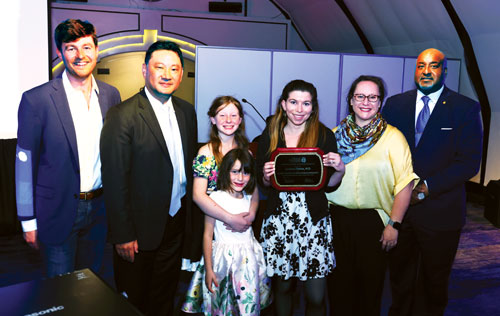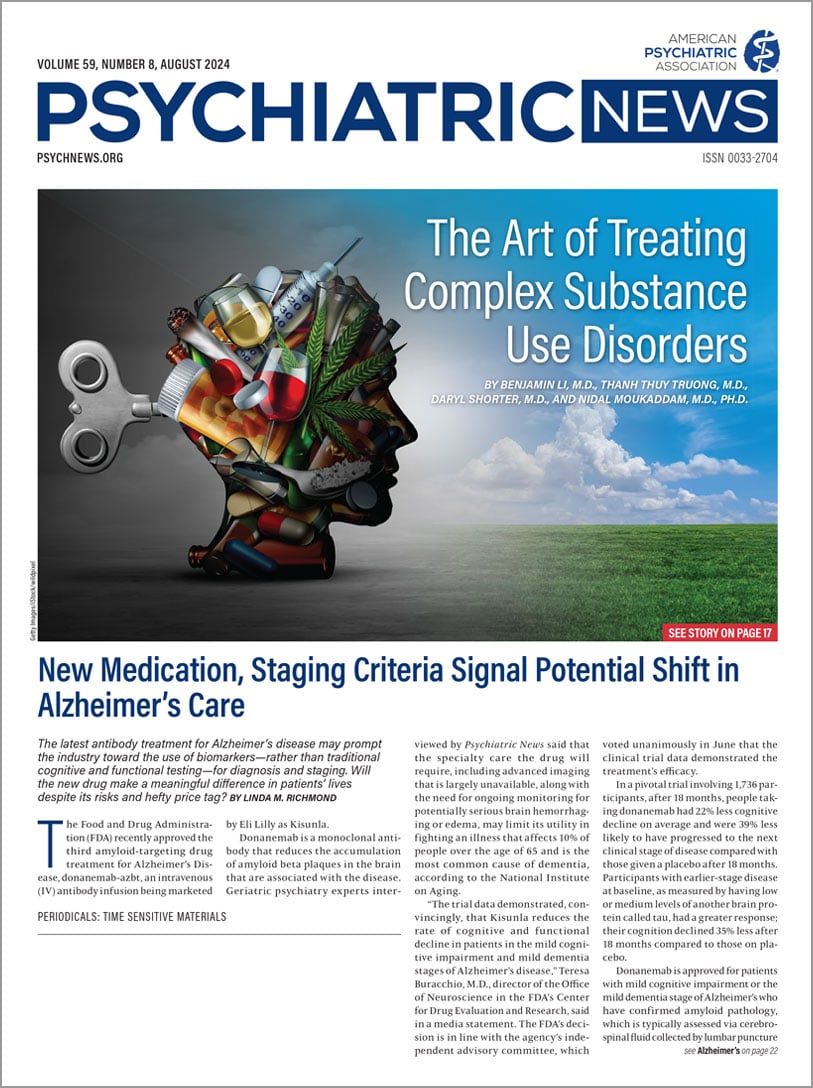While there is a shortage of child and adolescent psychiatrists nationwide, some parts of the country have it worse than others. In Alabama, there are only nine child and adolescent psychiatrists for every 100,000 youth statewide, according to a 2022
workforce study by the American Academy of Child and Adolescent Psychiatry (AACAP). Further, 55 of 67 Alabama counties have no child and adolescent psychiatrists.
In 2023, Jordana Owens, M.D., a second-year psychiatry resident at the University of Alabama at Birmingham (UAB), worked with other residents, fellows, and faculty to develop a child and adolescent psychiatry interest group at UAB. The interest group provides a platform for students and residents to network with child and adolescent psychiatrists, learn about this medical subspeciality, and consider choosing a career in a field that sees many fellowship positions go unfilled each year.
For her efforts, Owens was presented with APA’s 2024 O’Leary Award for Innovation in Psychiatry at this year’s Annual Meeting. The award was presented on May 7 during the Diversity Leaders and Alumni Reception.
The O’Leary Award for Innovation was established by the APA Foundation in 2022 (and first awarded in 2023) in memory of Paul O’Leary, M.D., M.Sc., who served as Assembly speaker for the 2019-2020 term and was a member of the APA delegation to AMA, prior to his untimely passing in May 2021. The award recognizes an innovative idea to improve the quality of, efficiency of, and/or access to mental health care services–especially for minority and underserved communities.
“Forming an interest group may not seem like rocket science, but to get a framework in place and get people engaged takes vision and courage,” said Vasilis K. Pozios, M.D., chief medical officer of the Oakland Community Health Network in Troy, Michigan, and one of the members of the O’Leary Award Selection Committee. Pozios is the immediate past speaker of the APA Assembly.
“It’s also great to see Paul’s goal come to realization,” Pozios added. O’Leary was a child and adolescent psychiatrist at UAB (as well as former UAB undergraduate, medical student, and resident) who championed the idea of getting an interest group started. “To me, what Paul strove for in his medical career and work with APA was to think outside the box to solve real-world problems that needed to be solved.”
As part of the O’Leary Award, the recipients receive $5,000 in seed money to help make their idea a reality. Owens plans on using the seed money to support local activities for the interest group such as “Lunch and Learn” sessions or community service projects, as well as to support travel to national events including the AACAP annual meeting.
“I love that another resident won this year’s award,” said Declan Grabb, M.D., who received the
inaugural O’Leary award last year for a project using AI to expedite the patient intake process. Grabb recently finished his fourth year of residency at Northwestern University and is starting a fellowship at Stanford.
“The funding is wonderful, but the validation of your idea from an institution like APA is truly incredible,” continued Grabb, who was at this year’s award ceremony. “Residents do struggle with getting people to listen to their ideas, and hopefully Jordana and I are showing that young doctors do have innovative solutions for improving the healthcare system.”
Grabb said the award can also be a steppingstone to new adventures. “When I submitted my proposal, I was focused on the granularity of intake forms, but as I’ve learned more about AI, I’ve become more interested—maybe even obsessed—with the broad questions of how we integrate AI into medicine in an informed and ethical manner.”
Over the past year Grabb has written several research and editorial pieces and was part of a panel discussion at this year’s Mental Health Innovation Zone.
Over that time, he has had lots of positive communication with APA, the Foundation, and the O’Leary family. “This is not just about the project; they really care about the awardees as people.”
Pozios is also reveling in the success of Grabb, Owens, and young psychiatrists overall. He told Psychiatric News that beyond the winners, he has reviewed many impressive submissions over the first two cycles of this award. “Based on what I’ve seen, I think the next generation of psychiatrists will help us reach a sustainable future for mental health care.” ■

